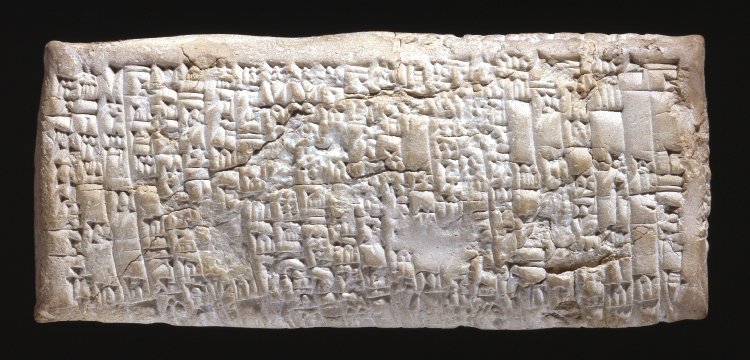This 4,000-Year-Old Tablet Could Be the World's Oldest Customer Service Complaint

© Trustees of the British Museum under CC BY-NC-SA 4.0
This Babylonian tablet from 1750 BC goes to show that customer service and client/vendor disputes were happening well before shopping malls and Amazon. The clay tablet comes from the ancient city of Ur, now part of southern Iraq, and is part of the British Museum's collection. Though it's just 4.5 inches (11.6 cm) tall and about 2 inches (5 cm) wide, the complaint is rather detailed.
Written in cuneiform, the letter from Nanni to Ea-nasir is a complaint about the wrong grade of copper delivered and Ea-nasir's subsequent slights as Nanni attempted to get his proper delivery. The tablet, which was acquired by the museum in 1953, was translated by A. Leo Oppenheim in the 1960s and published in his book Letters from Mesopotamia. Oppenheim was a leading Assyriologist until his death in 1974 and was said to have read more cuneiform than any living person.
Thanks to Oppenheim, we have a clear view of Nanni's complaint and his threat to bring Ea-nasir to court if the matter was not resolved. The tablet reads:
Tell Ea-nasir: Nanni sends the following message: When you came, you said to me as follows: "I will give Gimil-Sin (when he comes) fine quality copper ingots." You left then but you did not do what you promised me. You put ingots which were not good before my messenger (Sit-Sin) and said: "If you want to take them, take them; if you do not want to take them, go away!" What do you take me for, that you treat somebody like me with such contempt? I have sent as messengers gentlemen like ourselves to collect the bag with my money (deposited with you) but you have treated me with contempt by sending them back to me empty-handed several times, and that through enemy territory. Is there anyone among the merchants who trade with Telmun who has treated me in this way? You alone treat my messenger with contempt! On account of that one (trifling) mina of silver which I owe(?) you, you feel free to speak in such a way, while I have given to the palace on your behalf 1,080 pounds of copper, and Umi-abum has likewise given 1,080 pounds of copper, apart from what we both have had written on a sealed tablet to be kept in the temple of Samas. How have you treated me for that copper? You have withheld my money bag from me in enemy territory; it is now up to you to restore (my money) to me in full. Take cognizance that (from now on) I will not accept here any copper from you that is not of fine quality. I shall (from now on) select and take the ingots individually in my own yard, and I shall exercise against you my right of rejection because you have treated me with contempt.
Nanni's message proves that well before Twitter made it easy to air grievances publicly, the Babylonians were organized and orderly. Their well-known court system was sanctioned by kings and allowed judges to carry out the law swiftly. And thanks to tens of thousands of cuneiform tablets found in Ur, archeologists were able to learn a vast amount about life in Mesopotamia. These tablets detail contracts, business records, and court proceedings that demonstrate just how close ancient society was to our modern lives. In fact, it's difficult not to sympathize with Nanni, as he details how he held up his end of the bargain, only to be constantly put at bay by Ea-nasir.
Though the Babylonian tablet isn't currently on view, this photo shows what the cuneiform letter looked like when on display at the British Museum.
h/t: [reddit]

















